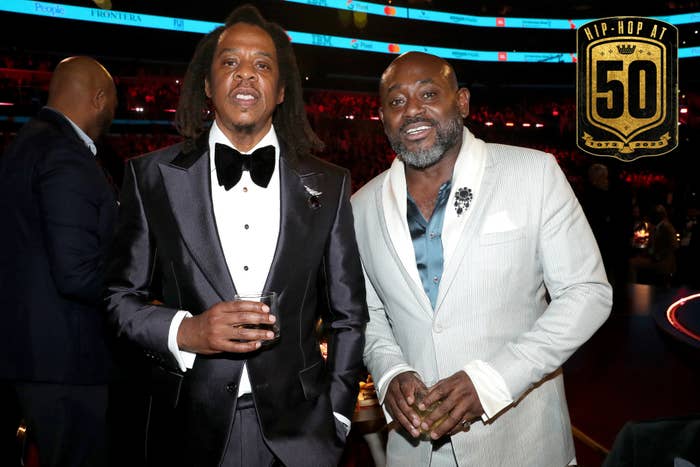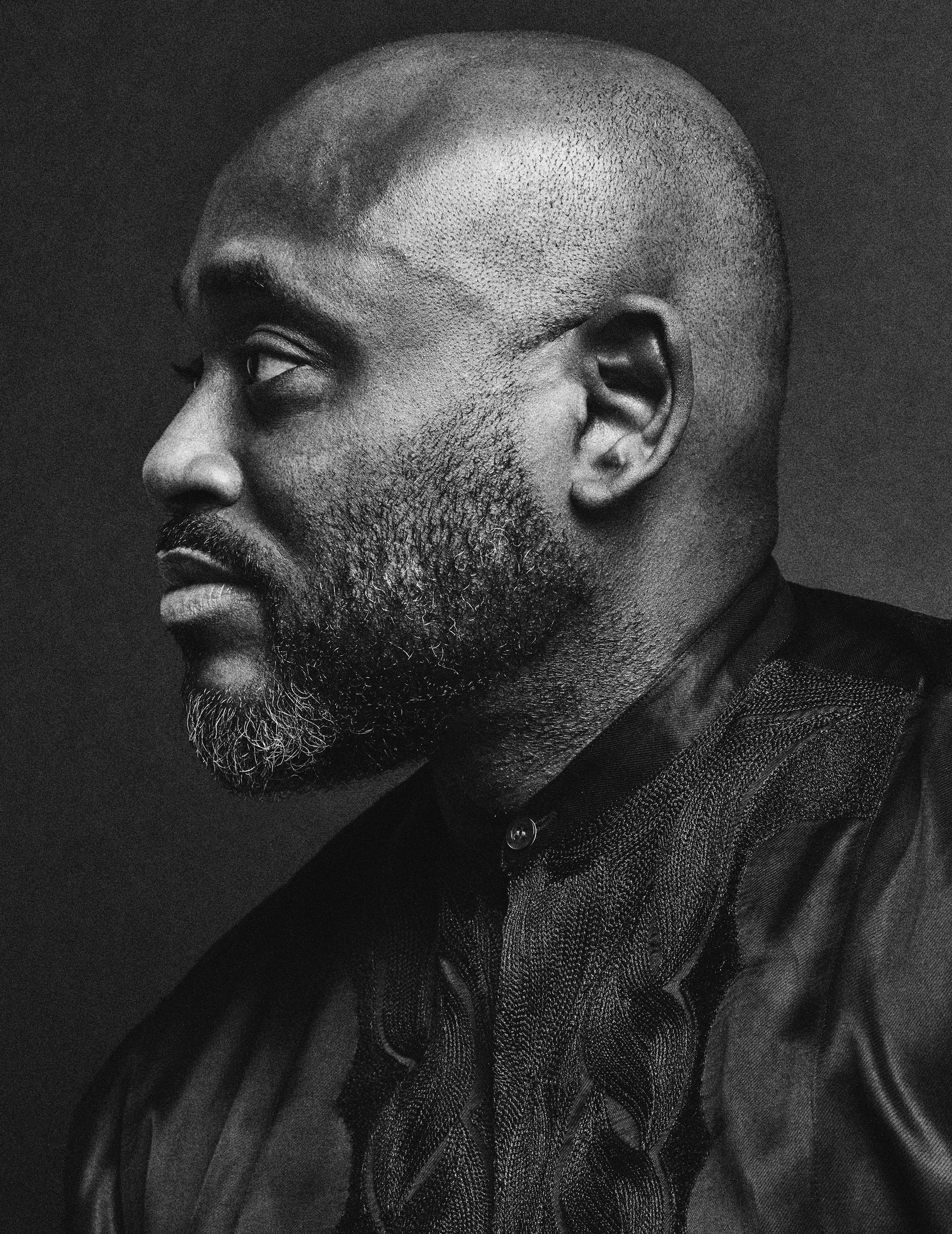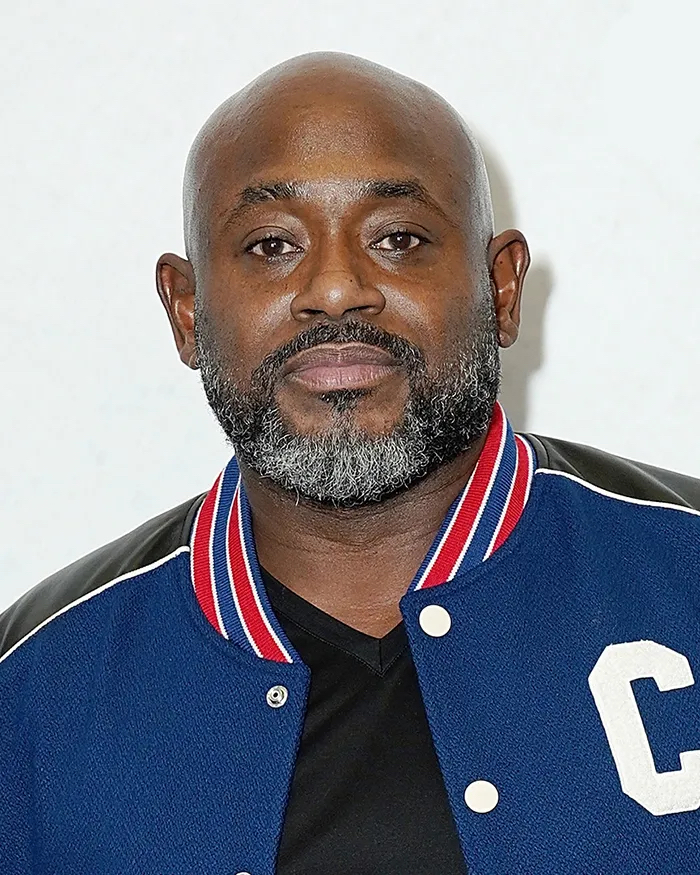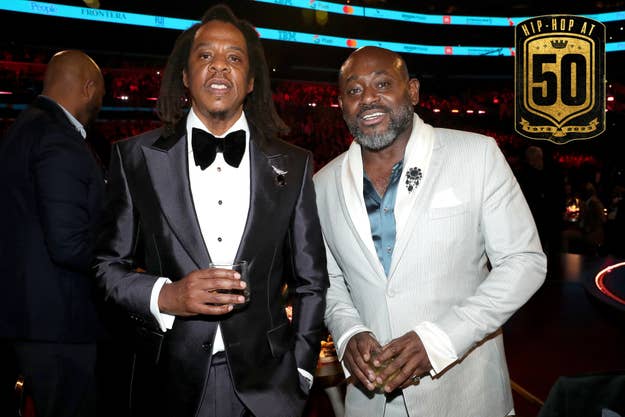
Visionaries is a conversation series with key players in the music industry who work behind the scenes to make our favorite genres the rich wells they are today.
Steve Stoute has built his three-decade-long career in music and marketing—and the successful careers of artists like Kid N’ Play, Mary J. Blige, and Nas—by staying the course. The music industry veteran and Founder/CEO of UnitedMasters is a champion of independence for new and emerging artists, and his perspective informs the work he does with the distribution company.
“Sometimes in a marketplace, everybody's running towards the same thing and you look at that acceleration and that excitement, and then you get hindered by that,” Stoute tells Complex over the phone. “In fact, you may change directions on what you're doing because all of a sudden you see noise happening somewhere else.”
Most recently, Brent Faiyaz notably signed to UM in May 2023 following the success of his last album, Wasteland, and the company also has several initiatives like its “100-Hour Commitment” with Bulleit Frontier Whiskey that provides 100 hours of mentorship to rising artists from different industry experts and artists under the UnitedMasters umbrella. In the popularity-driven ecosystem rap lives in, Stoute believes that it’s important for acts to build a brand that their listeners can trust.
“Getting popularity is getting faster and losing popularity is getting faster—they go hand in hand,” he says. “So my whole thing with artists is like, the most important thing you can do in a marketplace like that is build a brand. Stand for something, because the truth of the matter is that people are gonna gravitate towards something that they can trust.”
When artists build that trust with their fan base, anything is possible—even performing at the Super Bowl. Usher told Complex UK that he would be the first independent artist to perform at the Super Bowl, and he also expressed to Stoute, who doesn’t work with the artist directly but has become a friend, how important the moment will be not just for him, but for all independent musicians. “Usher said to me, ‘Steve, it's very important for you and the independent music business that I'm the first independent artist ever to play the Super Bowl.’ And I said, ‘You're absolutely correct.’”
Stoute’s belief in artist independence doesn’t only apply to emerging and rising acts. In 2020, Stoute told The Breakfast Club that if Drake went independent then “the music industry would be done.” When we ask about that He still thinks Drake doesn’t need the label system, and neither does the rest of the “Big 3,” Kendrick Lamar and J. Cole. “They know that, the label system knows it, and the artist knows it,” Stoute says. “What did the label do? They gave them money, but outside of the money, the system hasn't done anything. I've always said that signing a record deal is the most expensive loan you can sign, and the reason why I said that line that if Drake was to go independent, it would change the music business is because everybody would realize they don't need them.”
"I've always said that signing a record deal is the most expensive loan you can sign."
Hip-hop had a slow start to 2023, with no rap album topping the Billboard charts at the beginning of the year until Lil Uzi Vert’s Pink Tape went No. 1 in July. However, despite the lull of streaming success for the genre throughout the year, Stoute recognizes that the “cultural impact is at its all-time high,” and looks at artists like Taylor Swift clamoring to work with newcomers like Ice Spice as evidence of this. “So why would I believe that [rap is] down 40 percent when the biggest artist in the world who makes country pop music wants Ice on her record,” he says. “She's putting the sauce on the record because she knows that sauce is required.”
That “sauce” is what has helped rap flourish over the last 50 years, and what will help it persist for the next 50 regardless of how the genre and its sensibilities change. Complex spoke to Steve Stoute about the best advice he’s ever gotten, the importance of mentorship, and why there will always be a “Big 3” in rap.

Thinking back during your time as Kid N’ Play’s road manager at 21, what are your thoughts on artists like Lil Baby and others having to cancel tour dates despite having massive followings? What’s the X factor in terms of getting people in seats?
Most of these songs that are coming out are features, and these features require other artists to be on them. The artists are not necessarily investing in production to give the fans a show. So they're basically just getting a version of the song that may not even have the other person who's on it in a feature, and that's becoming very prominent.
The other thing I would say is that festival culture has become the new thing. Like I'll buy a ticket to see everybody, and it's a better value, and all the acts are there. There's so many Rolling Louds now—I'm gonna get my fix there. So I think it's a combination of all those things that's leading to this.
I was revisiting one of the stories from your book, The Tanning of America, about “Jay Z Blue” and how it got left on the cutting-room floor, but you knew it was a great idea that just wasn’t completed. How many other moments like that have you had in your career, and are there any that immediately come to mind?
I would say that was the biggest one. I would also say that as we were building footwear around artists—we did the S. Carters, the G-Units, the ice creams with Pharrell—Reebok got sold during that time, and I don't think we got a chance to complete that thought either. It was early and it was right and I felt like there was so much more we could have done, but we didn't get a chance to do it because of Reebok getting sold.
[Jay-Z] would tell you the same thing, because the hardest thing to do with color is first to find a unique color and then get it on a Pantone chart, and that's what we did. We invented the color, and that’s hard. And then getting it to be officially on a Pantone chart is extremely difficult because you have to time it right, and that's a global uniformly accepted standard for color. The purse qualifies as a new color and then [to] be able to make it on that chart—they only publish it once every five years. That’s difficult and we got it all right, and then it didn’t happen. And then Cadillac did a deal with us, and we made it an option for an upgrade for Cadillac Escalade. We got that done. There is a Jay-Z Blue Cadillac Escalade that exists.I have no idea where it is; you can find it online. Jay-Z came out to the Detroit Auto Show in whatever year that was, 2003, 2004. He walked out onstage at the Detroit Auto Show with a Jay-Z blue car behind him.
Mentorship is such a big part of UnitedMasters and the programs you all do. What’s been one of the most valuable pieces of advice you’ve received from a mentor that you now use with mentees of yours?
I've learned a lot from Jimmy Iovine and everybody knows that everybody. And it was really understanding the value of patience because sometimes in a marketplace, everybody's running towards the same thing and you look at that acceleration and that excitement and then you get hindered by that. In fact, you may change directions on what you're doing because all of a sudden you see noise happening somewhere else. He used to always say this line, “Stick to your knitting,” and stick to your knitting was like— don't know if you ever went to your grandmother's house, and she'd be knitting something and it's small. Then you come back three months later and it's a full duvet, and you're like, “How the hell did it get so big?” She stuck to her knitting, and that's what happens with focus. So don't get distracted by what's going on.
How do you think UnitedMasters and the '100 Hour Commitment' that you have provides artists with a strong base to help them build something sustainable?The truth of the matter is it's not only hip-hop music that's becoming digested in a fast-food way—it's all music. I would say probably the genre of music that has held on the longest to not being subject to that is country music, but certainly pop music, by nature, is defined by that. It's popular, and the speed of popularity is only getting faster. Getting popularity is getting faster and losing popularity is getting faster; they go hand in hand. So my whole thing with artists is like, the most important thing you can do in a marketplace like that is build a brand. Stand for something, because the truth of the matter is that people are gonna gravitate towards something that they can trust. So whether it be the music you make and then the merch that you make or building a fan base and then how you cater to that fan base, that should be first and foremost. Not trying to go and get as many fans as possible, but really servicing your fans with content, products, stories that they expect and want from you. And one of the artists I have a lot of respect for is Russ. Russ and Brent Faiyaz. Russ is not with [United Masters]; Brent is, but my respect level for them is through the roof because they built a loyal fan base.
They didn’t go around chasing things just because, and those are independent acts. A signed act that I think has done a great job of building a fan base and emaining true to who he is is Future. Future still is Future, making No. 1 records, making smashes, staying in the pocket, knowing who his fans are, knowing who he is. He built an unbelievable brand.
You said a few years ago that “if Drake went independent, the music industry would be done.” Looking at the landscape today, do you think major acts like him, J. Cole, or Kendrick need the label system?
No, they don't need the label system at all. They know that, the label system knows it, and the artist knows it. What did the label do? They gave them money, but outside of the money, the system hasn't done anything. I've always said that signing a record deal is the most expensive loan you can sign, and the reason why I said that line that if Drake was to go independent, it would change the music business is because everybody would realize they don't need them. When you see the success of Brent, the success of Russ, the success of a lot of these artists from Africa, this is happening organically. This is happening through social media, playlists, and just their overall presence. This is not being driven by a record company system; it's not being driven by radio; it's not being driven by systems that the record companies control.
Usher is an independent act right now about to play the Super Bowl. Usher said to me, “Steve, it's very important for you and the independent music business that I'm the first independent actor ever to play the Super Bowl.” And I said, “You're absolutely correct.”
Looking ahead to the next 50 years of hip-hop, you’ve watched Kendrick Lamar, Drake, and J. Cole grow from the beginning of their careers. With your understanding of the “Big 3” dynamic, do you think rap will have another Big 3, or is that era over?
You’re calling them the Big 3, but it's not because of their size. They're the big three because they can rap their ass off. They're not the big three because of sales. It's not like they're the top three sellers. They're the top three rappers. They're the top three bar-spitters. So just look at it that way. So from a rapping perspective, yeah, I think there will always be a big three. And if you want to put Rick Ross in it, there's a big four. I can't tell you that Kendrick Lamar is a much better rapper than Rick Ross. I don't believe that.

Do you think rap still values bar-spitters in the way it once did?
That record [“First Person Shooter”] with Drake and Cole is about bars. What Cole is doing to these records, what he did with the 21 Savage record, the Lil Yachty joint—forget what he did to the Lil Durk record. That's just insane. He's putting bars on these records, and everybody's responding to the bars. There's always gonna be younger people or older people that would say, “Nah, it ain't Nas, BIG, and Jay [Z]; it’s Rakim, KRS-One, etc. That's a normal thing. That’s not a new thing.
Do you think the model of rapid dominance has changed at all, in terms of what defines who's on top?
I think there are periods of that, where it's like we don't even care about lyrics at all and that becomes a popular thing. And then you have guys who've done such a great job. Everybody was saying that [about] mumble rap or whatever, and then Lil Wayne is destroying shit, rapping his ass off, or 2 Chainz is rapping his ass off. or Rick Ross is rapping his ass off.
So there are always going to be these pockets of time with the art form at its purest place will be devalued. And then you have people who come in the game and they're like, “What are you talking about?” And then they just start spitting those bars, right? When you look back at hip-hop 50, you'll always find, over those 50 years, periods in which there was a lull, in which maybe bars weren't driving sales or bars weren't perceived as value. And then all of a sudden it comes back up again. That's the cyclical nature of music. I'm just happy that we're still in that period where those things still matter.
Juicy J claimed that rap music sales are down 40 percent, and there’s been a lot of conversations about the state of hip-hop this year. Do you take any stock in that?
I would say there that the fluctuation that you're discussing on rap music being down 40 percent, the music may be down 40 percent. The cultural impact is at its all-time high. So streaming rap music may be down, but I don’t think that means rap music is on its way out the door or anything like that. It just means that right now it's going through a lull. But if the impact of the culture was down 40 percent, I'd be super concerned. Like if all of a sudden all of the things that you see that emanate because of rap music or hip-hop culture was not being adopted by the masses, I would worry about that. But the fact of the matter is fashion, style, Ebonics, dance, it's all coming from hip-hop culture.
You have to measure the whole thing, not just the music. You think Taylor Swift is working with [Ice Spice] by accident? She wanted that sauce, and Ice Spice is a new act. And even with Ice Spice being a brand new act, she still wanted to stand next to her, put her on the record, and get that sauce. That's not down 40 percent. That's one of the biggest artists in the world saying, “I want this sauce next to me.” So why would I believe that it's down 40 percent when the biggest artist in the world who makes country pop music wants Ice on her record? She's putting the sauce on the record because she knows that sauce is required.
You signed Kobe to Sony back in 1999. So you've always seen the intersection between rapping and sports. What are your thoughts on NBA players now acting as A&Rs for major albums?
Kevin Durant is the first person to tell me about Pop Smoke. LeBron [James] is the first person to tell me about 2 Chainz. Both KD and LeBron have unbelievable ears for music. They find them early. They're open-minded. They listen to everything and they love music. LeBron also was the first person to put me on to Migos. He listened to their mixtapes.

